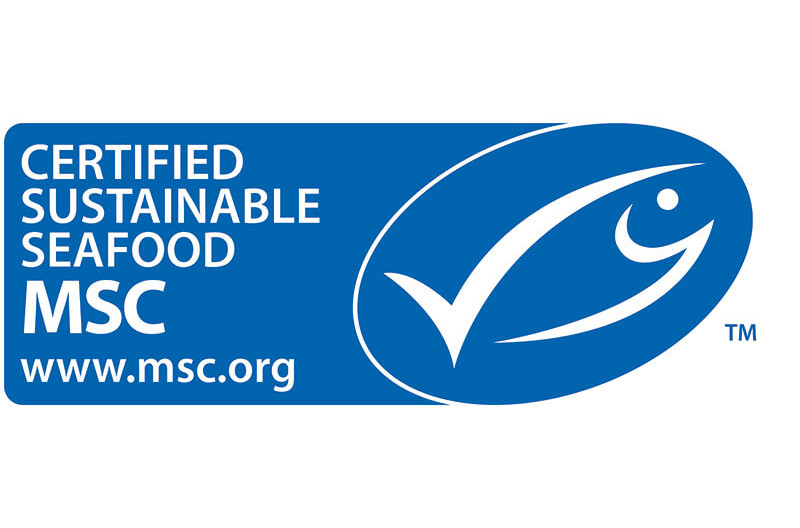The Marine Stewardship Council (MSC), a non-profit whose sole mission is to make sure wild seafood is around forever, celebrated U.N. World Oceans Day (June 8) by kicking off its “Little Blue Label, Big Blue Future” campaign. Through messages and video, the MSC blue label campaign runs the duration of June – U.S. National Oceans Month – and demonstrates how daily decisions as simple as meal planning impact the ocean and its inhabitants.
High levels of concern for our ocean are driving a new wave of consumer activism, new research for the MSC reveals, as consumers increasingly “vote with their forks” to safeguard our ocean. Conducted by independent research and strategy consultancy, GlobeScan, the MSC recently conducted the largest survey of its kind involving more than 20,000 people across 23 countries. The survey revealed 65 percent of Americans believe supermarkets should remove all unsustainable fish and seafood products from their shelves.
“More than ever, we see an increased passion from consumers and companies alike to take steps that protect the ocean, including choosing sustainable seafood,” said Brian Perkins, regional director for the Americas at the MSC. “The MSC has been on a mission to end overfishing for more than 20 years. In honor of World Oceans Day and National Oceans Month this year, we’re asking Americans to keep our ocean healthy for future generations by shopping sustainably when buying seafood and other products. The little choices we make have a big ripple effect.”
The ocean contains up to 80 percent of life on Earth. However, a third of fisheries around the world have been fished beyond sustainable limits, and a further 60 percent are fished to their maximum capacity. Because seafood provides an important source of protein to more than 3 billion people on our planet, it’s crucial to adopt habits that ensure the ocean and seafood will be around for generations to come.
“Though some of us might live far from saltwater, our lives on land are intrinsically tied to our ocean through the choices we make, particularly when we’re choosing to eat seafood,” said Jaclyn Wegner, director of conservation action at Shedd Aquarium in Chicago. “At Shedd Aquarium, we’re studying vulnerable fisheries in the Caribbean to help inform better management practices. Locally, we empower consumers and restaurants to make choices that keep the future of our big blue planet in mind and preserve the habitats of our beloved penguins, whales and sharks in the wild.”
In the same GlobeScan study, 55 percent of U.S. seafood consumers agreed that in order to protect the ocean, we have to consume fish and seafood only from sustainable sources.
“One of the bright spots of this current global crisis is that the interest and willingness from consumers to try fish from a can is an at an all-time high, and many canned products are MSC certified sustainable options, too,” said Bart van Olphen, chef, author, sustainable fish advocate and founder of the Fish Tales brand. “There are so many delicious meals and snacks to be made with the varieties of canned fish, and people all over the world are experimenting not only with canned tuna, but also sardines, mackerel and salmon. My advice as people continue to expand their tinned fish repertoire is to look for the MSC blue label across every fish variety.”

